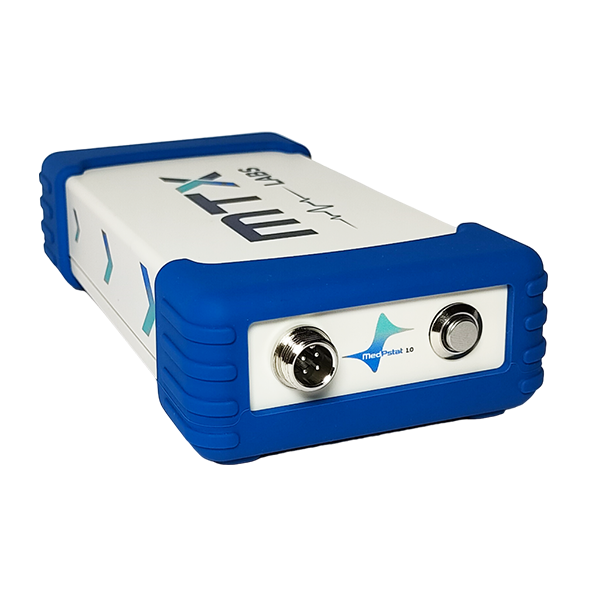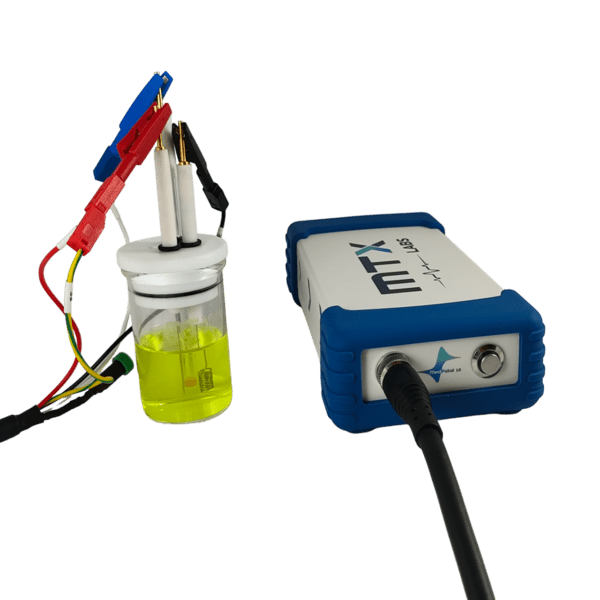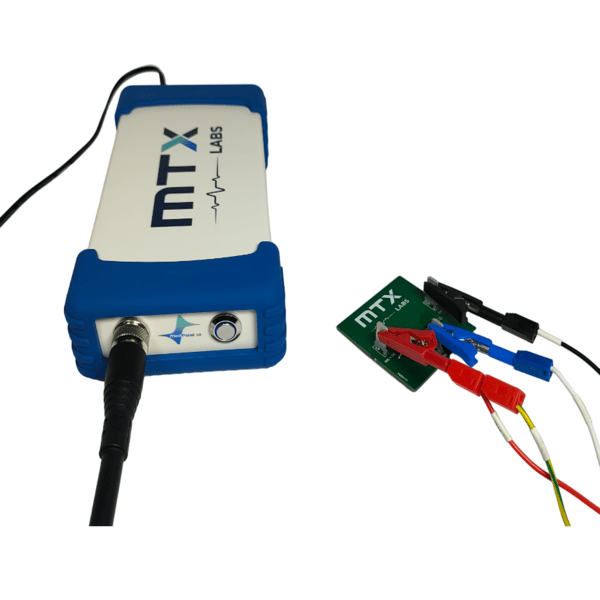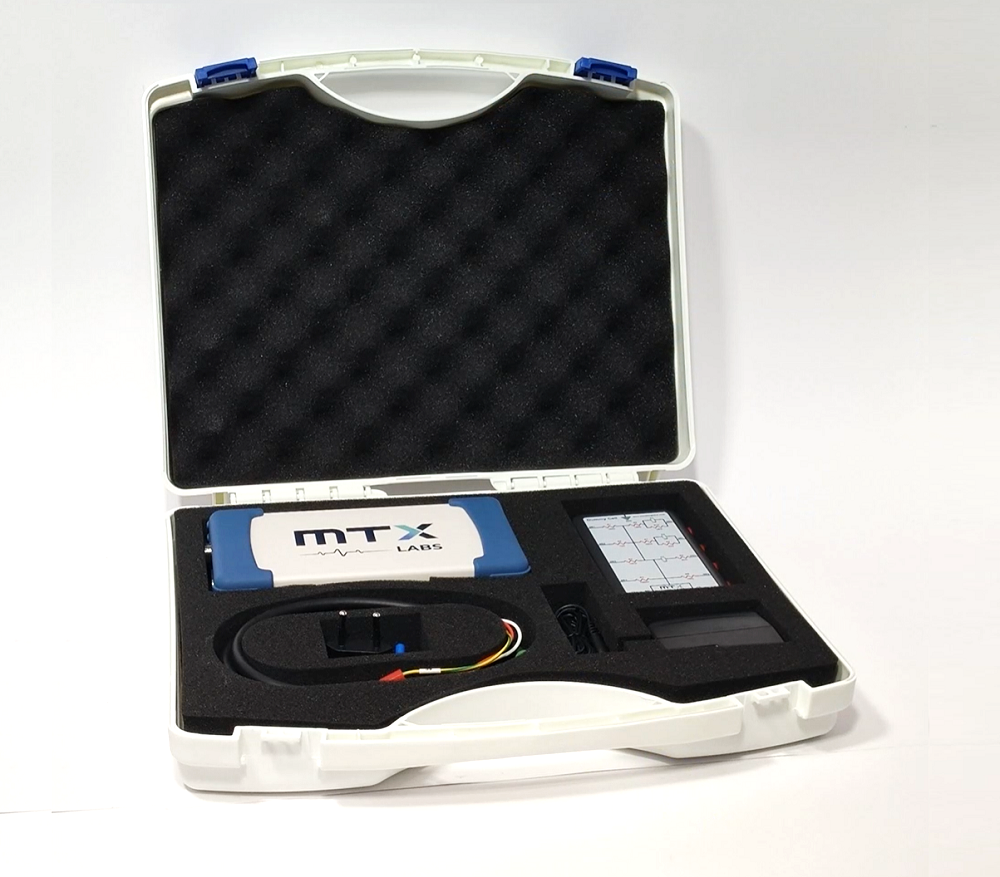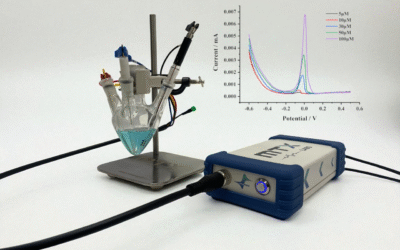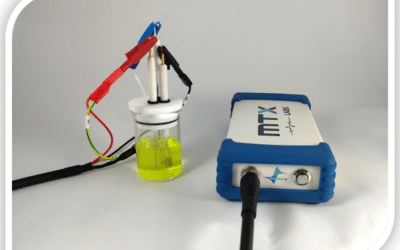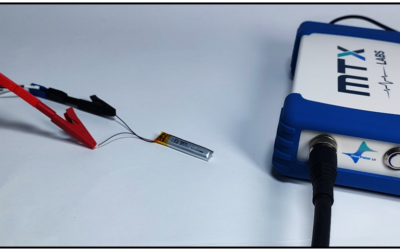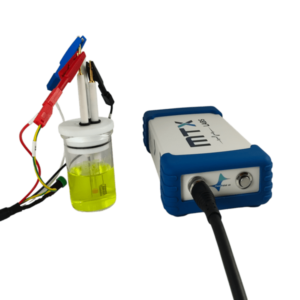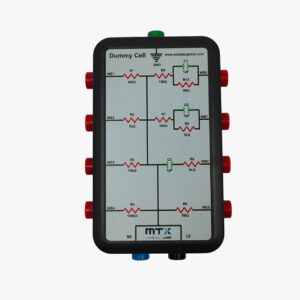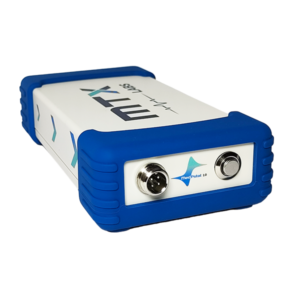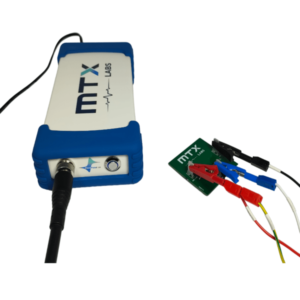This application note highlights the electrochemical detection of copper ions (Cu²⁺) using differential pulse voltammetry (DPV), showcasing a reliable method for trace copper ion analysis in environmental and industrial samples with the Medpstat. The study assesses...
Handheld Potentiostat/Galvanostat, Electrochemical Analyzer (MedPstat 2.0 Advance)
Original price was: $3,100.00.$2,990.00Current price is: $2,990.00.
- Handheld Affordable & Potentiostat/Galvanostat
- Applied Potential Range: ± 10 V
- Max Current Range: 250 mA
- Measured Potential Range (Gal): ±10 V
- USB Communication
- Software for PC Data acquisition & plotting
MedPstat 2.0 Advance is a Portable, Affordable, & Precision Potentiostat/Galvanostat with a wide range of ± 10V, 250 mA. Optimum for electrochemistry research applications. Included is a high-quality dummy cell for learning & calibration applications and lifetime access to free software - MedEplot for PC, data acquisition & plotting.
Detailed Specifications:
- Electrochemical Methods: CV, LSV, ChronoAmp, OCP, DPV, SWV, ChronoPot, Charge-Discharge, Corrosion Analysis (Tafel), Corrosion Analysis (Polarization Resistances)
- Channels Per Unit: 1
- Applied potential range: ± 10 V
- Applied Potential Accuracy: 0.1% of the setpoint, 1mV Max
- Applied Potential Resolution: 345 µV
- Measured Potential Accuracy: 0.1% of the setpoint, 1mV Max
- Measured Potential Resolution: 312 µV
- Compliance Voltage: ±15 V
- Maximum Current: 250 mA
- Current ranges: 7 Ranges (10nA to 250mA)
- Measured Current Accuracy: 1% of the range, 100pA max
- Measured Current Resolution: 0.03% of range, 3 pA
- Applied Current Resolution (Gal): 3.45 nA
- Measured Potential Range (Gal): ±10 V
- Input Impedance: > 10 TΩ
- Input Bias Current: 1pA Max
- Computer Interface: USB
- Channel Cable Length: 0.8 meters
- power supply: 24V DC
- Power Supply Requirements: 100V - 240V AC
- Weight: 320 grams
- Physical Dimensions: 181mm * 91.5mm * 42mm
- Operating temperature range: 0 to 50°C
- Communication: USB
- PC Software: Available with a lifetime license
- Bandwidth: up to 10 MHz
- Max. data acquisition rate: 1 KHz
- ADC/DAC Resolution: 16 bit
- Slew Rate (No Load): 45V/µs
- Maximum ADC Sampling Speed: 5,00,000 samples/sec
Additional information
| Weight | 1.4 kg |
|---|---|
| Dimensions | 340 × 300 × 90 cm |
| Select Model | MedPstat 1.0 (Basic) 30mA, MedPstat 1.0 (Advance) 100mA, MedPstat 1.0 (EC Kit) with Cell Setup |
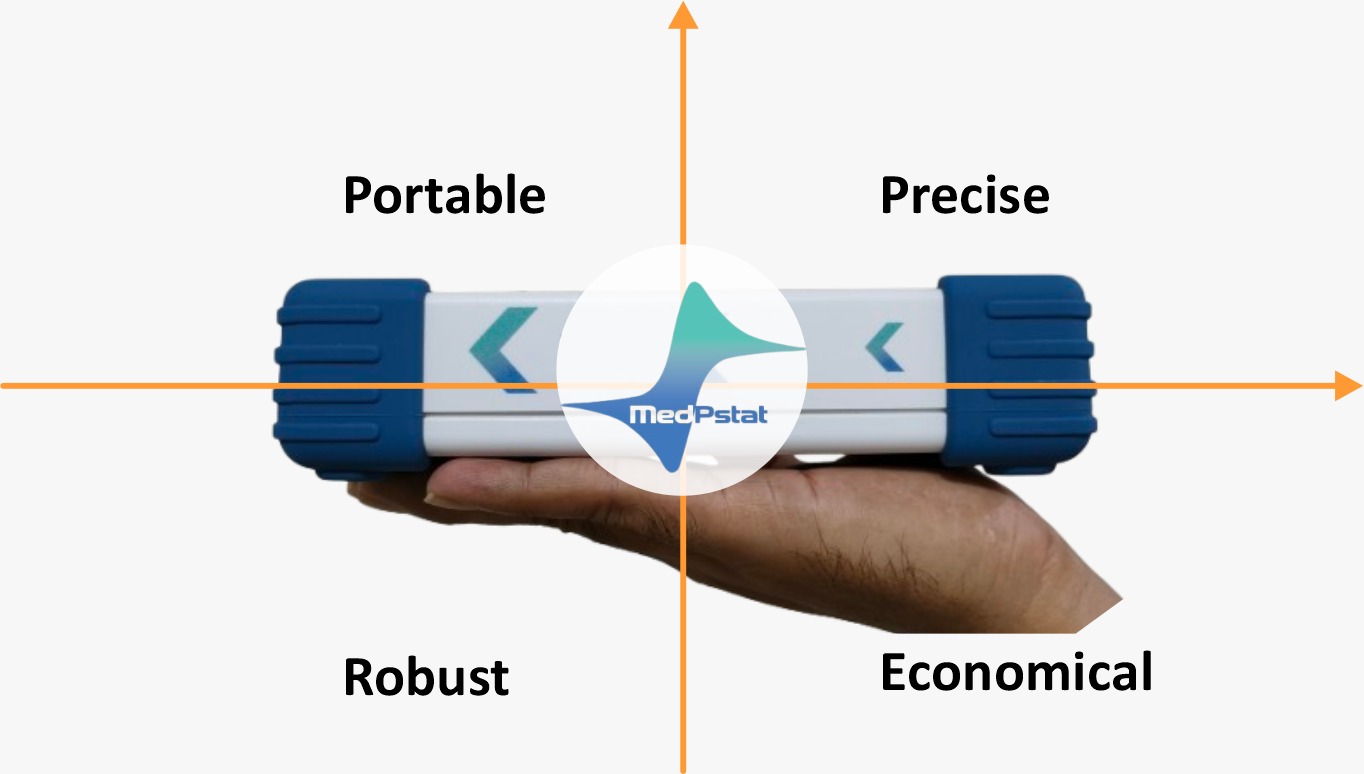
Software
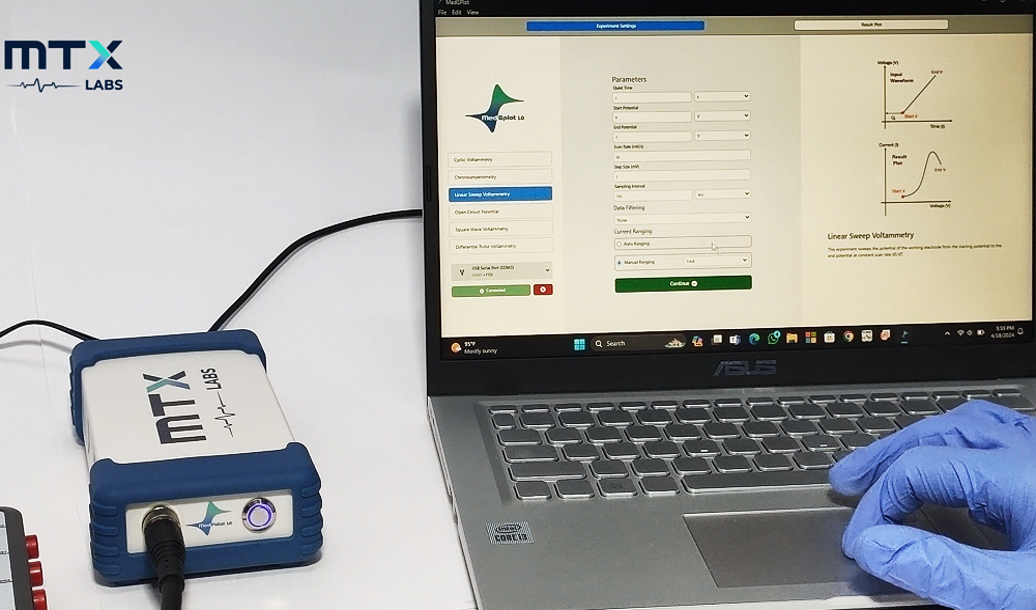
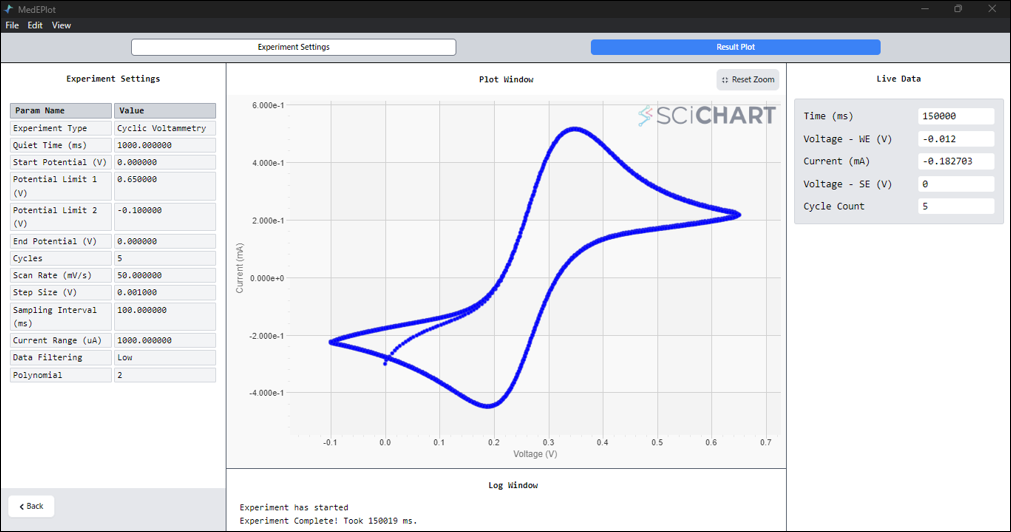
MedPstat comes with lifetime free licensed version of MedEplot data acquisition & plotting software. It is compatible with any PC or laptop with windows OS.
MedEplot is specifically designed to

Simple User Interface
Light Weight Software
Live Data View
Save Data in CSV
Open / Overlay Plot
Windows / IOs
MedPstat 2.0 Advance Kit Package
Most Versatile Potentiostat/Galvanostat (1 piece)
Electrode Cable (1 Piece)
Mini Dummy Cell (1 piece)
Power Adaptor (1 piece)
USB C Cable (1 piece)
Pen Drive with Software (1 piece)
Warranty: 1 Year
Offer Price: $2990
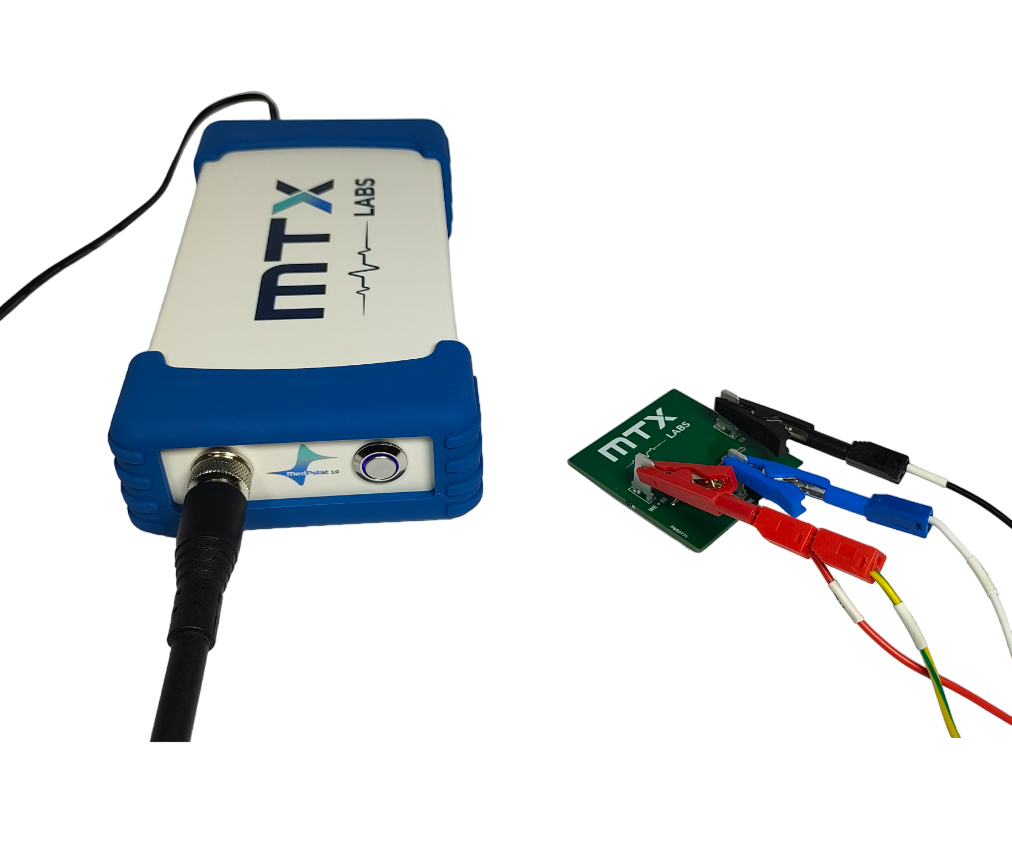
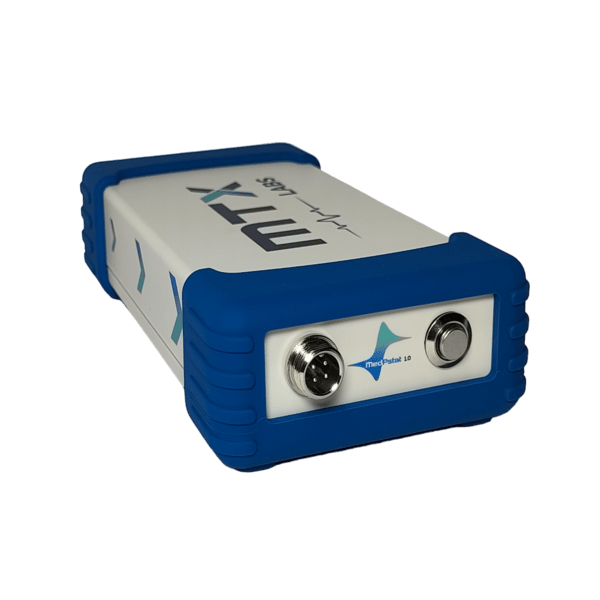
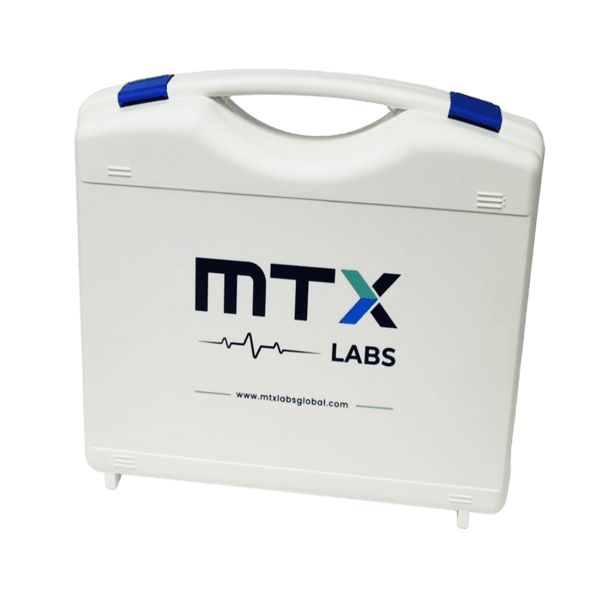
MedPstat Models Comparison
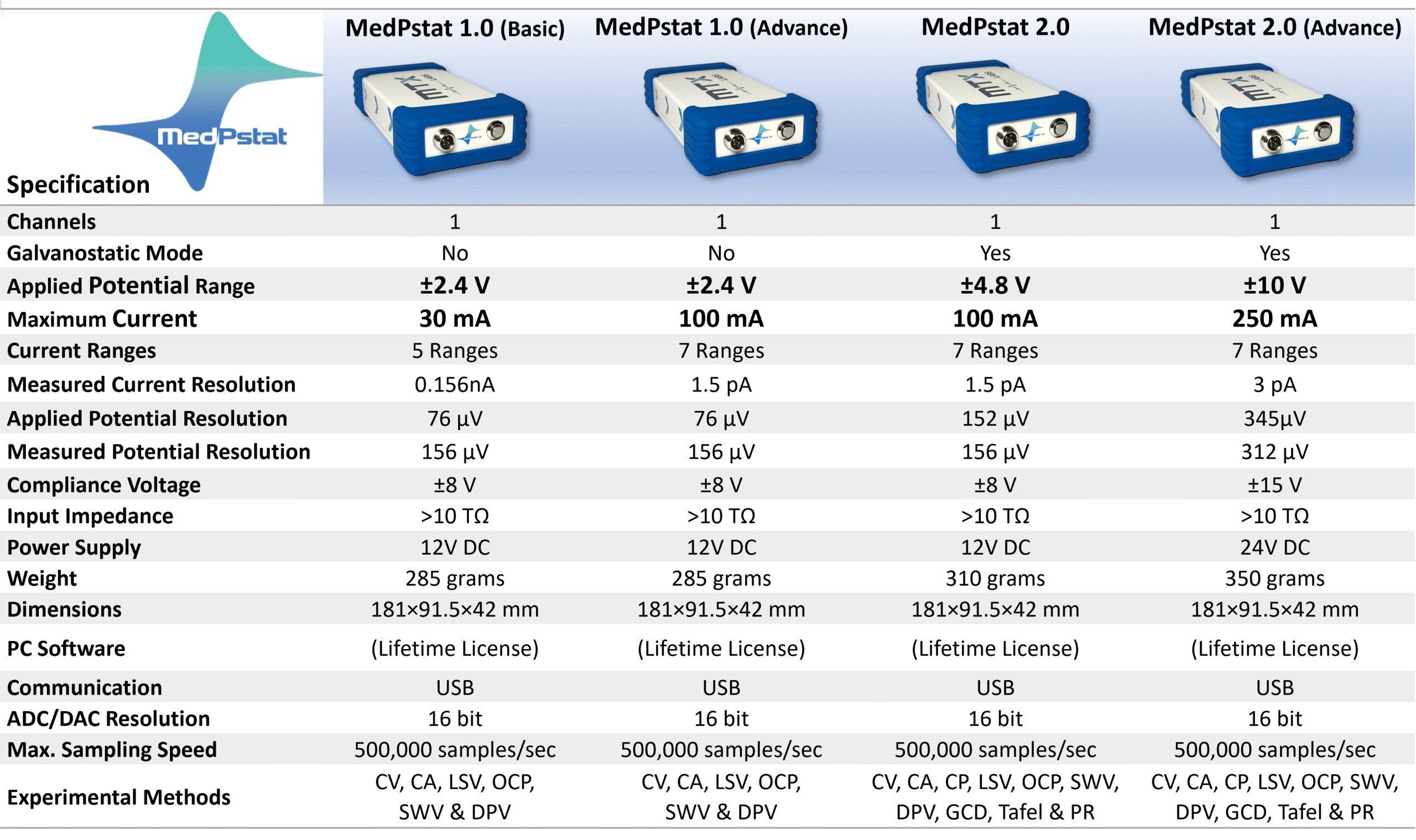
Videos
Application Notes
Application Note on How to Calculate the Corrosion Rate of Metals in Saline Solution using Electrochemical Techniques (Tafel Analysis)
Corrosion rate measurement is critical for evaluating the durability of metals and protective coatings. Although there are various methods to estimate corrosion rate in different applications, the Electrochemical Corrosion Measurement is a widely adopted technique due...
Application Note on Measuring Diffusion Coefficient for Electrochemical Redox Systems Using Potentiostat
In this application note, the step-by-step process to calculate the diffusion coefficient (D) for ferro-ferri cyanide redox couple is explained with the help of portable potentiostat MedPstat 2.0. The note explores the effect of scan rate on the voltammetric response...
MedPstat for your Long-Term Electrochemical Analysis: Built to Run Endlessly!!!
This application note provides a comprehensive guide for assessing the performance and stability of the MedPstat Electrochemical Analyzer. The Ferro/Ferri cyanide redox couple was chosen as a model system due to its well-defined and reversible electrochemical...
Application note on Ground connection pin in a Potentiostat using MedPstat
This application note highlights the importance of grounding in electrochemical studies, particularly when using the MedPstat potentiostat. Many researchers tend to overlook this aspect, but proper grounding is essential for accurate results and safety. Grounding...
Portability Multiplied: Now MedPstat in the field with an external battery-powered source
This application note highlights Medpstat as a reliable and portable solution for electrochemical testing, especially in field applications. Unlike traditional potentiostats that require continuous external power and occupy significant bench space, the Medpstat...
Application Note on Analyzing Li-ion Batteries Using MedPstat 2.0
Batteries are a crucial part of modern energy storage technologies, powering anything from electric cars to portable electronics. As demand for efficient energy storage grows, advancements in battery chemistry and design are essential for better performance and...
Application Notes on Electrochemical Water-Splitting in Alkaline medium using MedPstat 2.O
This application note offers a detailed overview of how the Potentiostat device is utilized in electrochemical water-splitting studies. This note aims to help researchers understand and effectively utilize the MedPstat 2.O device for their water-splitting experiments....
Note to Calibrate a MedPstat with MTX Labs mini Dummy Cell
This application note provides comprehensive guidance on using the mini Dummy Cell for MedPstat calibration. The mini Dummy Cell includes a 1K ohm resistor, essential for checking the current ranges during calibration. The primary focus of this document is to check...
Application Note on testing Screen Printed Electrodes (SPE) with Potentiostat MedPstat 1.0
This application note provides detailed instructions for using the MedPstat device in Ferro/Ferri cyanide redox couple investigations, employing MTX Labs Screen-printed carbon electrodes. This Ferro/Ferri cyanide redox system serves as an excellent model for...
MedPstat Research Publications
Chemical Engineering Journal (Impact Factor: 16.5)
N/NiO-ornated graphitic fiber-engrained micro-carbon beads: Innovative packed bed type capacitive electrodes for microbial fuel cells
The potentiostat (Autolab-M204, Metrohm, Netherlands and MedPstat 1.0 Advance, MTX Labs, India) was used for electrochemical anal ysis, and a modified version of an earlier protocol was followed [5,8].
DOI: https://doi.org/10.1016/j.cej.2024.156018
____________________________________________________________________________________________________________________
ROYAL SOCIETY OF CHEMISTRY (Impact Factor: 7.92)
CVD-Grown NiO-Carbon Nanofiber Decorated rGO Hybrids for High-Performance Electrochemical Hydrogen Storage: Role of Hierarchical Porous Structures
All electrochemical analyses were carried out using a computer-controlled potentiostat (Autolab-M204, Metrohm, Netherlands and MedPstat 1.0 Advance, MTX Labs, India), with data acquisition and processing through NOVA 2.0 software.
DOI: https://doi.org/10.1039/D5NR02443A
____________________________________________________________________________________________________________________
Journal of the Indian Chemical Society (Impact Factor: 3.4)
Tailoring the electrochemical properties of Ni-doped Co3O4 for Advanced supercapacitor electrodes
The MTX MedPStat 2.0 (MTX Industries, India) was used to conduct cyclic voltammetry (CV), galva nostatic charge–discharge (GCD), and Cyclic stability experiments over a potential window of 0.1 to 0.6 V
DOI: https://doi.org/10.1016/j.jics.2025.102170
FAQs
Unable to connect MedPstat with Software?
First, check the USB-C type cable to ensure it is properly connected. Then, go to the PC settings and open the Control Panel. Navigate to "Ports (COM & LPT)" and check if the USB drive is recognized. If it is not showing up or is listed under "Other Devices" as...
What is the use of a dummy test cell provided with MedPstat?
The dummy test cell provided with MedPstat is primarily used for calibrating instruments and checking the current ranges. So, we provide a 1K resistor, which allows for easy testing of the instruments. If you encounter any issues or have doubts about the readings,...
What is the power requirement for MedPstat?
The MedPstat requires a power supply of 100V - 240V AC, 50/60 Hz. We provide a high-standard power supply compatible with American, Australian, UK, and European/Indian connections for universal use (You can choose any of them). The power cable is 1.5 meters long for...

